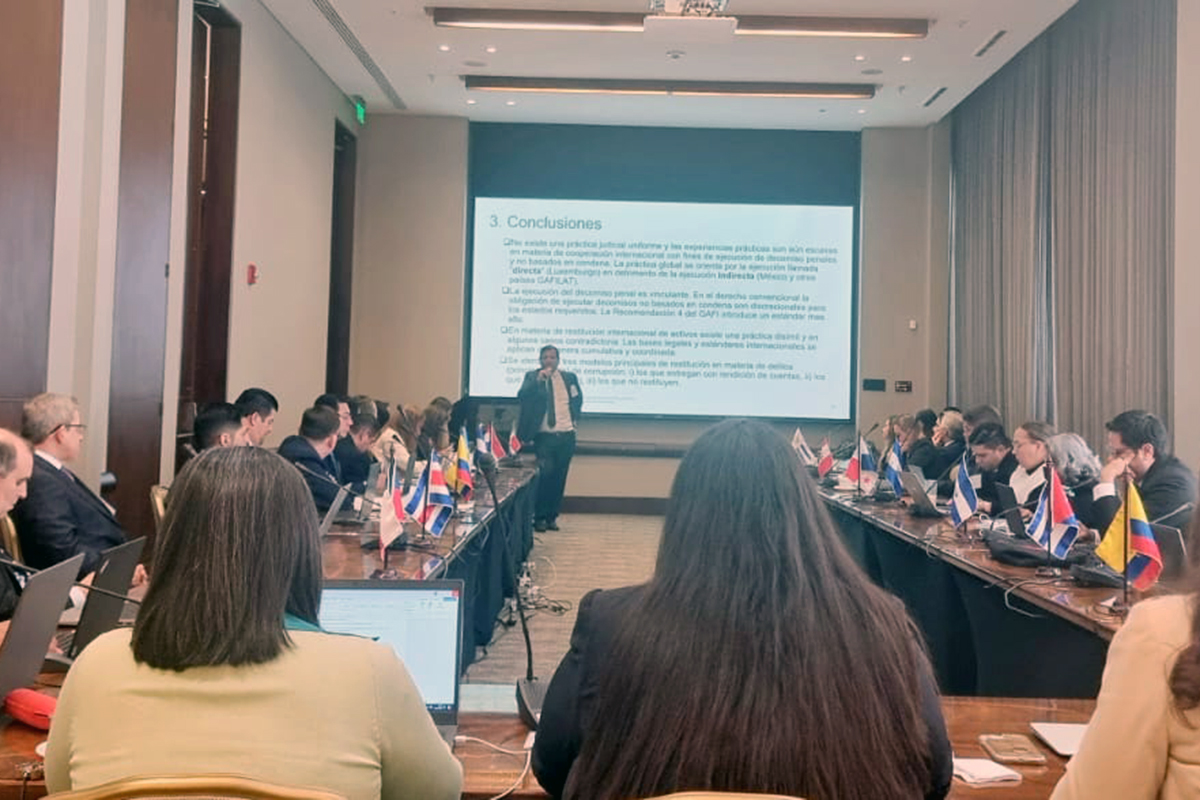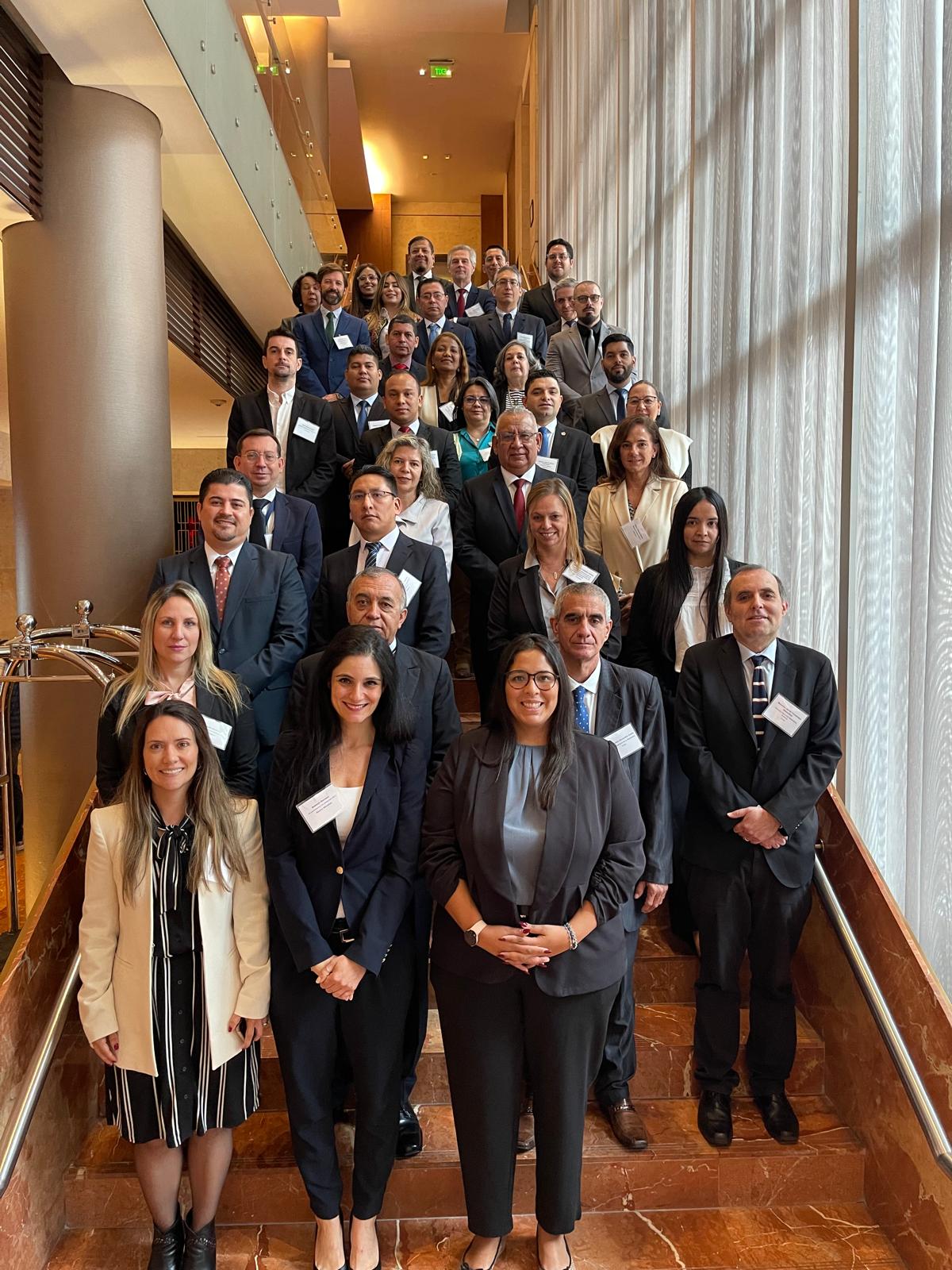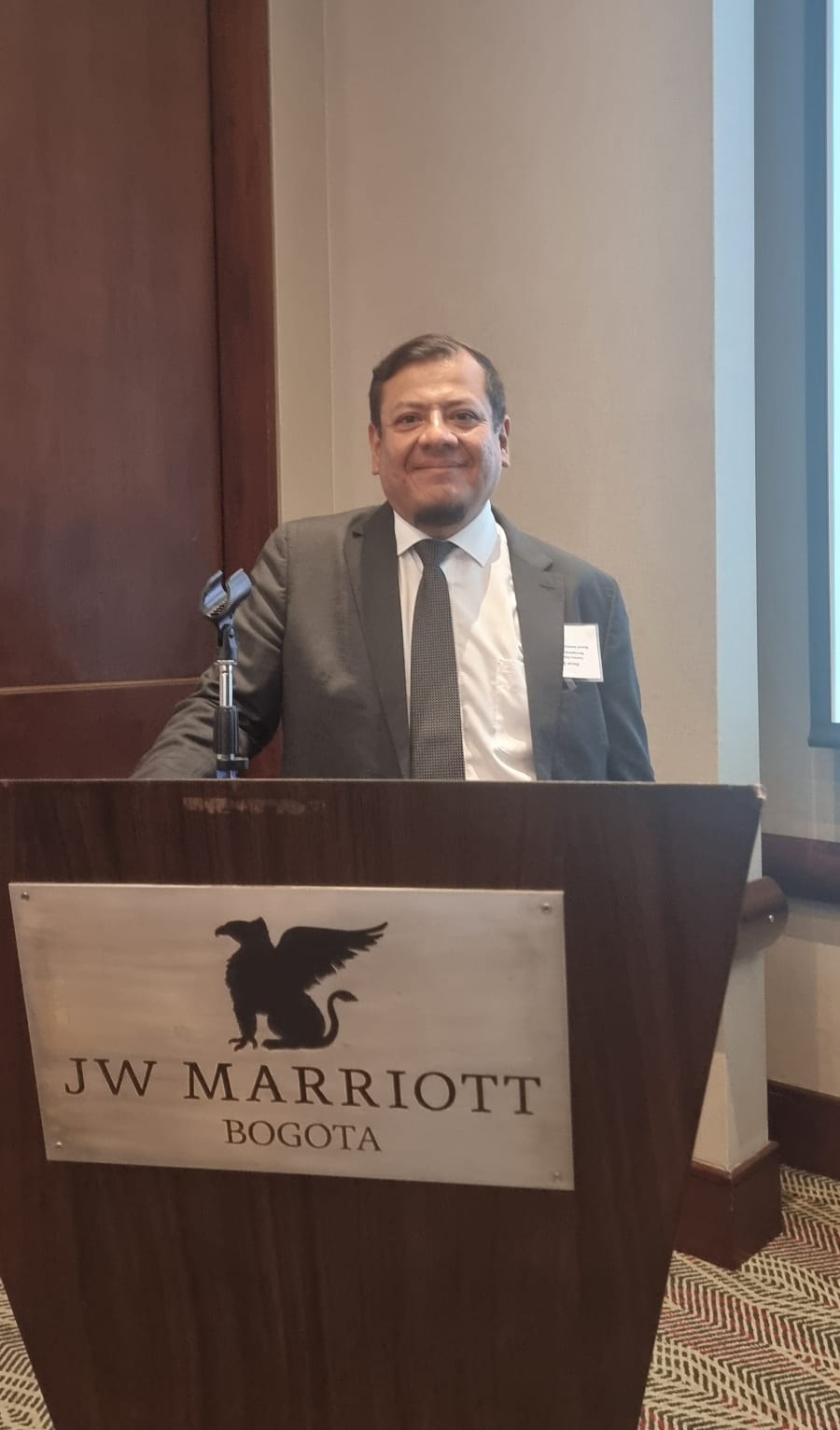FATF seeks to change the landscape of international asset recovery: what this means for Latin America

At a recent meeting of the Asset Recovery Network of GAFILAT – the Latin America body of the Financial Action Task Force or FATF – Oscar Solórzano explored what the latest changes to the FATF standards could mean for asset recovery practice in Latin America.
Through our International Centre for Asset Recovery (ICAR), we are an observer member of the GAFILAT Asset Recovery Network or Red de Recuperación de Activos (RRAG) and regularly provide training and technical input to the group’s deliberations. The meeting took place in Bogotá, Colombia, on 25–26 June 2024.
In November last year, new global rules on international asset recovery came into force which are intended to change the prevailing global judicial practice. These new rules clarify and complement currently applicable international standards.
The revisions to FATF Recommendation 4 introduce, among other things, the obligation for FATF member states to implement non-conviction based confiscation mechanisms to complete the arsenal of legal tools used to combat economic crime. The standards of the United Nations Convention Against Corruption (UNCAC) do not contain such an obligation to legislate on non-conviction based confiscation (Article 31 UNCAC). As a result, until now the global adoption and implementation of such tools has been erratic.
The updated FATF Recommendation 38 establishes an obligation to cooperate internationally in non-conviction based confiscation cases. Not only are countries obliged to implement such mechanisms themselves. They are, first and foremost, obliged to provide mutual legal assistance to countries seeking to recover assets internationally through non-conviction based confiscation.
The new recommendation clarifies the rule in Article 54(1)(c) UNCAC (Mechanisms for asset recovery and international cooperation) that left it to the discretion of the requested state whether or not to cooperate when a victim state seeks to recover assets via non-conviction based confiscation. The UNCAC standard in this regard is also limited to corruption offences, while the FATF standards have a broader scope.
More cases, more requests?
More than 20 years after UNCAC introduced what were then considered revolutionary asset recovery standards, the FATF has taken a decisive step aimed at changing the global asset recovery landscape. In fact, many developing countries have already enacted these innovative asset recovery tools. In Latin America, for example, only two countries do not possess any form of non-conviction based confiscation law.
Thus, it is to be expected that Latin American states that have suffered from rampant economic crime will seek to recover more assets internationally. Cases will be stimulated by the possibility of seeing requests for information, seizures and non-conviction based confiscation judgments enforced in the financial centres holding those assets.
Recommendation 38 codifies some recent judicial practice in GAFILAT countries, such as Peru or Colombia, which have been successful in their efforts to recover illicit assets from Switzerland, Guernsey, Luxembourg and other European financial centres based on non-conviction based confiscation mechanisms.
In these cases, efficient international cooperation has been provided based merely on national legislation and the understanding that international asset recovery is a shared responsibility which cannot be obtained without the cooperation of both the victim state and the state where the assets are located.
Urgent need to align with human rights standards
From my experience, research and conversations with asset recovery professionals all over the world, however, non-conviction based confiscation has raised concerns and is not globally and coherently applied. The lack of harmonisation and the great variety of applicable standards have contributed to the poor performance of this legal mechanism at the international level, particularly with regard to the international enforcement of judgments.
Will the FATF’s updated standards be enough to foster international asset recovery via non-conviction based confiscation?
The response to this question is not as clear as it seems. This is because international asset recovery procedures depend on the fulfilment of other standards. For example, the non-conviction based confiscation law used by the victim state should not contravene the fundamental principles of the requested state, particularly its domestic interpretation of human and other constitutional rights. This means that non-conviction based confiscation decisions in a victim state must comply with basic principles of the rule of law and internationally recognised standards of human rights – the right to property and to a fair trial, to name just two.
The adoption and implementation of fair non-conviction based confiscation procedures, anchored in the rule of law, are the starting point for fruitful international cooperation. It is also a crucial part of the shared responsibility of victim states.
The picture within Latin America
In my speech at the RRAG meeting, I explained that judicial practice in GAFILAT countries has exposed shortcomings and a diverse practice in the enforcement of international non-conviction based confiscation judgments.
Lack of clarity on channels of judicial cooperation
Many Latin America states are still unclear about the judicial cooperation channel to be used in the execution of non-conviction based confiscation decisions, given their quasi-civil nature and the arguments regularly made to distance these legal devices from criminal proceedings.
Indeed, some question why a law of a civil nature would seek international cooperation in criminal matters. The simplest answer is probably that, despite the civil standards used in non-conviction based confiscation, the purpose is to confiscate criminal assets, which is a matter dealt with by international cooperation in criminal matters.
Moreover, cooperation in criminal matters provides more and better judicial safeguards, is mostly free of charge for the requesting state and is regulated by bilateral treaties and binding international law.
Direct enforcement of foreign judgements not always possible
Some Latin American states can execute foreign decisions through exequatur mechanisms in criminal matters, enabling the judicial enforcement of judgments in the terms and extension as expressed in the foreign decision. The exequatur procedure is a form of judicial cooperation in criminal matters which exists in civil law countries. It has been used by Latin American countries to enforce non-conviction based confiscation (final and enforceable) decisions in European financial centres.
In this model of execution the requested state (the financial centre) only verifies that the foreign confiscation decision respects internationally recognised standards of due process (for example, if the asset holder or other affected persons has had effective access to defence mechanisms in the foreign procedure or if the notification has been properly served, among others). Once this verification is carried out, the decision is generally enforced following the exact terms ordered by the foreign authority.
The exequatur procedure generally involves sometimes lengthy judicial proceedings in the requested state where the defence can make (again) its case before a judge of the requested state with limited power of cognition. That is to say, the judge of the exequatur does not rule on the merits of the case. His or her powers are limited to verifying the respect of due process and judicial guarantees in the foreign procedure. The requested judicial authority enforcing the foreign non-conviction based confiscation decision is bound by the factual findings made by the requesting authority. This is the so-called direct enforcement model.
The drawbacks of indirect enforcement
Other Latin American states cannot directly enforce foreign conviction- or non-conviction based confiscation judgments. Instead, their domestic law regularly compels their judicial authorities to initiate domestic proceedings with a view to obtaining a domestic confiscation order. This indirect enforcement of foreign judgements usually involves re-litigation, new evidentiary requirements, appeals processes, etc., and can lead to catastrophic delays and failures of cases.
A concrete example of the drawbacks of this model of enforcement has emerged in a recent case of international asset recovery between Peru and Mexico. Since 2021, Peru has sought the enforcement of a final and enforceable judgment under its Extinción de dominio law – the local form of non-conviction based confiscation law – through judicial cooperation in criminal matters in relation to a Peruvian politically exposed person’s corrupt account sitting in the Mexican financial system.
Despite the efforts of both Mexican and Peruvian authorities to advance this case, it is noteworthy that the enforcement stage is taking longer than the whole recovery process in the Peruvian Extinción de dominio procedure.
Progress visible
In some countries, mainly in Central America, a form of international judicial cooperation for the homologation of foreign civil judgements has been used to enforce non-conviction based forfeiture judgements. For example, Honduras recently executed an Extinción de dominio judgment obtained in Guatemala through a civil procedure aimed at homologating foreign civil decisions.
This successful cooperation between the two countries actively enforcing Extinción de dominio allowed the recovery of a property that had been corruptly acquired by a Guatemalan politically exposed person.
Despite the complexity described above, most Latin American states use the channels of judicial cooperation used in criminal cases in cases of non-conviction based confiscation. Although the practice is not abundant, the cases mentioned above may well represent the beginning of real good practice in judicial cooperation, leading to better results in the fight against corruption and other scourges that plague this part of the world.
The updated interpretative notes to the FATF’s Recommendation 38 encourage the “direct enforcement” of foreign confiscation orders to make these international processes more efficient. In many cases, the implementation of the new standards will therefore require changes in both legislation and judicial practices.
A positive step but a long path ahead
We believe the FATF new standards are a move in the right direction towards solving some of the challenges I identify above.
Still, much remains to be done by the international community and by domestic authorities to ensure that we see concrete judicial successes, smooth international cooperation and the return of far greater quantities of stolen assets to victim states.






